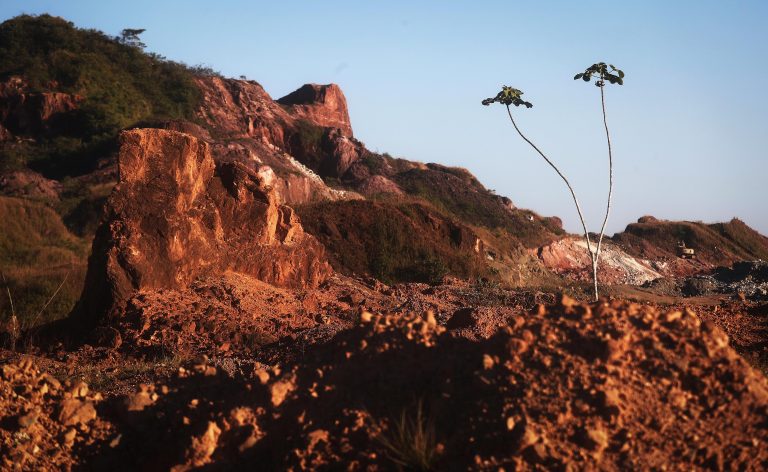A recent report published by Brazilian think-tank Igarape Instituté revealed the growing destruction of the Amazon rainforest at the hands of what they say are “environmental criminals,” and law enforcement appears to be incapable of adequately addressing the crisis.
A rainforest in disarray
The report describes how the affected state and federal forests are designated “unallocated,” meaning they are neither part of a national park nor part of Indigenous territories.
The data indicates that around 580,000 square kilometers (224,000 square miles) of federal forests, almost the size of Ukraine, are at risk.
The Igarape Institute’s report came after worldwide concerns arose surrounding deforestation in the Amazon, the world’s largest rainforest, and the environmental consequences that may come with its degradation.
According to the study, 302 environmental crime raids were launched by the federal police between 2016 and 2021, but only two percent were aimed at people who are illegally exploiting unallocated lands.
Success
You are now signed up for our newsletter
Success
Check your email to complete sign up
“This analysis found that protected areas of the Amazon, including Indigenous Lands, Conservation Units and Permanent Protection Areas, have been increasingly impacted by the ecosystem of environmental crime, principally illegal logging and gold mining,” the report claims.
Deforestation has continued to plague unallocated lands, with 31 percent of the forest illegally cut in 2016. That amount rose to 36 percent in 2021.
In 2016, around 2,240 square kilometers of unallocated areas were stripped down for wood. However, that area reportedly doubled in 2021, as reported by the Amazon Environmental Research Institute, adding to the total of 18,500 square kilometers destroyed by illegal harvesting in the past six years.
According to the Climate Observatory, a nonprofit network, deforestation is said to have caused almost half of the country’s climate pollution. The group said that the vast scale of destruction has not only stopped the absorption of carbon gasses, but has also transformed the area to be a producer of carbon gasses, according to a 2021 study published in the Nature journal.
READ MORE:
- New Report Reveals Shocking State of Australia’s Environment
- The Iconic Monarch Butterfly is Now Listed as an Endangered Species
- European Wildfires Are Detonating Unexploded 100-year-old Shells Fired in WWI
Law enforcement not enough
The Igarape Instituté’s report highlighted the weak legal protection of the unallocated areas. Environmentalists have been requesting the federal government convert these unallocated lands into protected areas.
Brazil’s restoration of democratic rule in 1985 saw most of its successive governments attempt to expand legal protections, leading to around 47 percent of the Amazon being designated a protected area. However, current President Jair Bolsonaro thinks that the country has too many protected areas and has stalled efforts to add more.
Bolsonaro has also boosted mining operations in the Amazon, claiming that it would help improve economic growth.
The Igarape Instituté separates environmental crime in the Amazon into four major illegal activities: stealing of public land; illegal logging; illegal mining; and deforestation linked to agriculture and cattle raising.
Enforcement operations were launched in over 846 areas, with nearly half of these areas being protected ones, including the Yanomami Indigenous Territory. However, even with a heavy police presence in this territory, thousands of illegal gold miners continue to trespass and violate it.
In one case of illegal gold mining, Brazilian police allegedly found illegal gold linked to an Italian refiner, who is said to have sold precious metals to four of the world’s largest tech companies: Amazon, Apple, Microsoft and Alphabet, the company that owns Google.
The Igarape study also mentioned an extensive “regional ecosystem of crime,” saying 24 of Brazil’s 27 states, in addition to eight cities in neighboring countries, were targeted by police operations.
“Environmental crime stems from illicit economies that access consumer markets and financing outside the Amazon,” the report says.
“Such criminal assaults on the environment typically come bundled with an array of converging crimes, such as fraud, corruption and money laundering,” the report added.


















